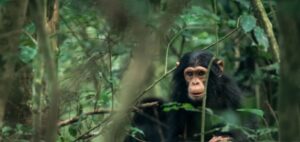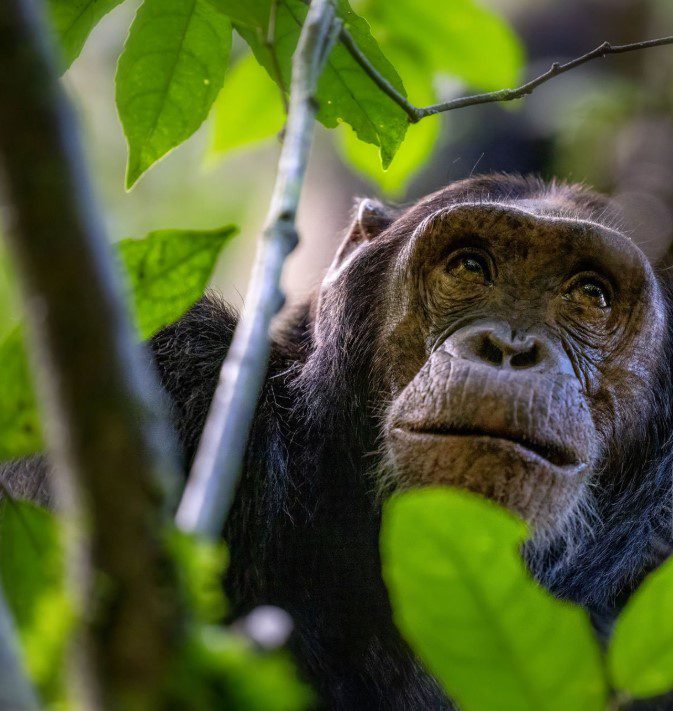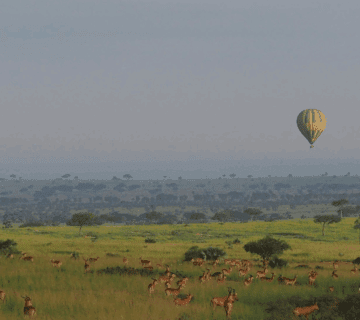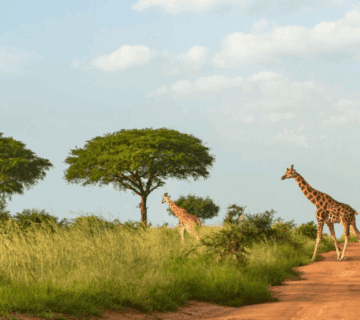Can Children Go Chimpanzee Trekking in Rwanda?
Rwanda, known as the “Land of a Thousand Hills,” offers an awe-inspiring landscape, teeming with wildlife, and a remarkable opportunity to connect with nature like never before. For those seeking a family adventure, the chance to go chimpanzee trekking in Rwanda is nothing short of magical. While many people envision a safari of big cats and elephants, the opportunity to trek through lush forests and encounter our closest cousins in the wild is a rare and unforgettable experience. However, if you’re wondering whether children can participate in this activity, the answer is yes within certain guidelines. Let’s take a closer look at what it takes to make this a family-friendly adventure.
Why Chimpanzee Trekking is an Incredible Family Experience
Chimpanzee trekking in Rwanda is an adventure that ignites curiosity, fosters a love for wildlife, and builds lasting memories. For families, this kind of trek is not just about seeing animals; it’s about experiencing the thrill of discovery, learning about conservation efforts, and connecting with the environment in a way that few other experiences can provide. Chimpanzees are incredibly intelligent, social creatures, and observing them in their natural habitat is both humbling and awe-inspiring.
When children embark on a chimpanzee trek, they’re not only given the opportunity to spot these fascinating primates but also to understand the significance of protecting them and their habitats. It’s an educational experience that goes beyond the classroom and provides an emotional connection to wildlife conservation. It’s also an adventure that can inspire young hearts to appreciate nature and its delicate balance.
Age Restrictions for Chimpanzee Trekking
While chimpanzee trekking is open to a wide range of visitors, there are important age restrictions that every family should keep in mind. The Rwanda Development Board (RDB) has put these regulations in place to ensure the safety and well-being of both visitors and the chimpanzees. For the safety of children, and to avoid disturbing the chimpanzees or putting them in a stressful situation, the minimum age for trekking is typically 12 years.
However, children as young as 5 years old may be allowed to participate, but only on a case-by-case basis. If you’re considering taking younger children on a chimpanzee trek, it’s essential to confirm with your tour operator or the RDB whether special arrangements can be made. Children under the age of 5 are generally not allowed on the trek due to the challenging nature of the terrain, the length of the trek, and the need to ensure the safety of the chimpanzees.
Is the Trek Suitable for Children?
Chimpanzee trekking is not an easy walk in the park. The trekking experience takes place in the dense forests of Gishwati-Mukura or Nyungwe National Park, and depending on where you go, the terrain can be steep and rugged. The trek itself can vary in difficulty, with some treks taking just a few hours, while others may take longer. While children above the age of 12 who are used to walking long distances and rugged terrains may find the trek enjoyable and manageable, younger children should be prepared for a strenuous journey.
It’s essential to assess whether your children are physically prepared for this adventure. If you decide to go on the trek with children, it’s important to consider their stamina, interest, and ability to stay calm during the trek. The last thing you want is for them to feel anxious or overwhelmed by the challenge of the terrain.
What Can Children Expect on a Chimpanzee Trek?

For those who make the cut-off age and physical stamina requirements, chimpanzee trekking in Rwanda will be nothing short of an exciting adventure. Once you start trekking through the dense forest, your guide will lead the way while sharing fascinating facts about chimpanzee behavior, the forest ecosystem, and the ongoing conservation efforts in Rwanda. This part of the experience is both educational and thrilling for children, as they get to learn about these incredible primates up close.
Upon reaching the chimpanzees, your family will witness them in their natural habitat socializing, grooming, or simply going about their daily activities. Observing these creatures can be a transformative experience for children, sparking a lifelong interest in wildlife and a deeper understanding of the need for conservation.
Though you won’t be able to approach the chimps too closely (as it is important to maintain a respectful distance), children will still be able to see them from a safe distance through the trees and shrubs, often watching them interact with each other. Your guide will ensure that your family maintains the proper distance and conducts the trek with respect and care for the wildlife.
Tips for Making the Trek a Success
Taking children on a chimpanzee trek requires some preparation. Here are a few tips to ensure you and your family have the best experience:
Prepare Physically: While the trek isn’t a full-on mountain climb, it does require some stamina. Make sure your children are prepared for the physical activity. It’s a good idea to do some shorter nature walks or hikes before embarking on the trek.
Wear Comfortable Gear: Wear sturdy, closed-toe shoes, lightweight clothing, and a rain jacket, as the weather can be unpredictable. It’s also recommended to bring hats, sunscreen, and insect repellent.
Pack Snacks and Water: It’s essential to stay hydrated and energized throughout the trek, especially for children. Bring snacks like fruit bars or nuts, and make sure to carry enough water.
Stay Calm and Patient: Chimpanzee trekking can involve waiting for the chimpanzees to appear or moving slowly through the forest. It’s crucial to remind your children to be patient and quiet during the trek to avoid disturbing the wildlife.
Educate Before You Go: Before setting out, take some time to educate your children about chimpanzees and Rwanda’s conservation efforts. This can help them appreciate the experience more and foster a sense of responsibility for nature.
How to Plan a Chimpanzee Trekking Experience with Children

Planning a chimpanzee trekking trip with children involves a few key steps. First, make sure to book your trek with an authorized tour operator or directly through the Rwanda Development Board to ensure all regulations are met. The most popular chimpanzee trekking locations in Rwanda are Nyungwe National Park and Gishwati-Mukura National Park. Make sure to check the availability of trekking permits and confirm the specific age and health requirements for the trekking session.
If you’re traveling with children, it’s best to work with an experienced guide who understands the nuances of family trekking. The guide will be able to make adjustments and offer advice to make the trek as comfortable and enjoyable as possible for your little ones.
Final Thoughts
Chimpanzee trekking in Rwanda can be a wonderful, life-changing adventure for families, offering a unique opportunity to experience wildlife conservation in action and connect with nature in a meaningful way. Although there are age and physical requirements to ensure safety, children who meet the criteria will have the chance to witness these intelligent creatures up close, creating memories that will last a lifetime.
For families who love wildlife and seek adventure, this is an experience that not only entertains but also educates. As you walk through the lush forests of Rwanda and encounter these magnificent primates, you’ll realize that the beauty of Africa’s wildlife can inspire a deep sense of wonder and respect, sparking a passion for conservation that children will carry with them for years to come. Whether your children are seasoned adventurers or first-time trekkers, a chimpanzee trek in Rwanda is bound to be an unforgettable journey.





